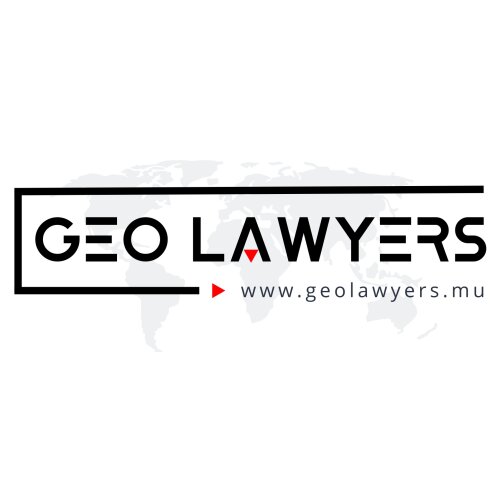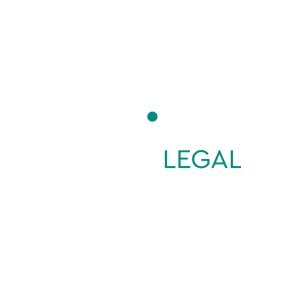Best Mining Law Lawyers in Mauritius
Share your needs with us, get contacted by law firms.
Free. Takes 2 min.
Or refine your search by selecting a city:
List of the best lawyers in Mauritius
About Mining Law in Mauritius
Mining Law in Mauritius regulates the exploration, extraction, and management of mineral resources found within the country’s territory. The legal framework aims to balance economic development with environmental conservation and to ensure that mineral activities are conducted responsibly and transparently. While Mauritius is not known for large-scale mining operations, there is growing interest in exploring mineral resources both inland and within its extended maritime zones. Mining activities are primarily governed by specific statutes and controlled by several governmental agencies.
Why You May Need a Lawyer
Seeking legal advice for Mining Law in Mauritius is crucial in a variety of situations. Common scenarios include applying for mineral exploration or mining leases, negotiating joint ventures or partnerships, resolving land ownership or usage conflicts, navigating regulatory compliance, and managing environmental regulations. Lawyers can provide assistance with contract drafting, due diligence, dispute resolution, and representation in regulatory proceedings. Whether you are an individual prospector, a corporate investor, or a landowner, legal assistance helps avoid costly mistakes and ensures adherence to all legal requirements.
Local Laws Overview
Mining activities in Mauritius are mainly regulated by the Geological Survey Act and related environmental and land use legislation. Key aspects include:
- The Geological Survey Act defines the processes for exploration and extraction of minerals.
- All mineral resources, except for those specified otherwise, are owned by the State. Private individuals generally require official permits to extract or process minerals.
- Exploration and mining licenses must be obtained from relevant governmental authorities. These licenses outline specific terms, obligations, and timeframes.
- Strict environmental compliance is required under the Environmental Protection Act. Environmental Impact Assessments (EIAs) are mandatory for most mining projects.
- The use and occupation of land for mining must align with land use planning laws and may require negotiation with local communities and property owners.
- Offshore mining, given Mauritius’s large Exclusive Economic Zone, is subject to both domestic and international regulations, including marine conservation laws.
Violating mining laws can lead to severe penalties, including fines, license revocation, and potential criminal charges.
Frequently Asked Questions
What minerals can be mined in Mauritius?
Mauritius is not traditionally a mineral-rich country, but some resources such as basalt, sand, coral, and rock aggregates are extracted for construction and industrial use. There is also ongoing exploration for potential offshore mineral deposits.
Do I need a license to mine or explore for minerals?
Yes. Any individual or entity seeking to explore or extract minerals in Mauritius must obtain relevant licenses from the appropriate government authorities.
How do I apply for a mining or exploration license?
You must submit a formal application to the governmental department responsible for minerals and mining. The process typically involves providing detailed project descriptions, environmental impact assessments, and proof of financial and technical capability.
Who regulates mining activities in Mauritius?
Mining activities are primarily overseen by the Ministry of Energy and Public Utilities, as well as the Ministry of Environment, depending on the nature of the mining operation.
What is the role of Environmental Impact Assessments in mining projects?
An Environmental Impact Assessment (EIA) is usually required before a mining license is granted. The EIA evaluates potential negative impacts on the environment and proposes mitigation measures.
Can foreign companies participate in mining activities in Mauritius?
Yes, foreign entities can participate but must comply with Mauritius’s legal requirements including obtaining necessary licenses and adhering to local regulations.
What legal protections exist for landowners affected by mining activities?
Landowners are entitled to compensation if mining activities impact their property. Proper processes must be followed to obtain land access, and disputes can be settled through negotiation or legal action.
Are there special regulations for offshore mining?
Yes. Offshore mining is governed by both national and international regulations given Mauritius’s extensive maritime zone. Projects require additional permits and strict environmental controls.
What are the penalties for illegal mining?
Illegal mining can result in fines, imprisonment, confiscation of equipment, and revocation of licenses. Enforcement agencies actively monitor compliance.
Can mining laws change in the future?
Yes, mining laws are periodically updated to reflect technological advances, environmental priorities, and economic needs. It is important to stay informed about recent legal developments.
Additional Resources
If you need further guidance or direct support, the following resources can be useful:
- Ministry of Energy and Public Utilities - The main authority for mining and mineral matters.
- Ministry of Environment, Solid Waste Management, and Climate Change - Responsible for issuing environmental permits and ensuring sustainable practices.
- Office of the Attorney General - Provides legal opinions on statutory interpretation and assists with legislative process.
- Mauritius Geological Survey Division - Offers geological data and advice concerning mineral exploration.
- Mauritius Chamber of Commerce and Industry (MCCI) - Offers business networking opportunities and information on sector regulations.
For legal practitioners, the Mauritius Bar Association and prospective legal clinics can also provide recommendations for specialized mining law attorneys.
Next Steps
If you require legal assistance in Mining Law, start by clearly defining your objectives or challenges. Gather all relevant documents, correspondence, license applications, and details of the land or maritime area involved. Consult with a legal professional experienced in Mining Law to evaluate your options and ensure compliance with all local regulations. You can contact the relevant government ministry for initial guidance, but having a qualified lawyer can help you navigate complex procedures, negotiate effectively, and protect your interests throughout the process.
Do not hesitate to invest in legal advice early, as the right guidance can save significant time and resources, and help you achieve a favorable outcome.
Lawzana helps you find the best lawyers and law firms in Mauritius through a curated and pre-screened list of qualified legal professionals. Our platform offers rankings and detailed profiles of attorneys and law firms, allowing you to compare based on practice areas, including Mining Law, experience, and client feedback.
Each profile includes a description of the firm's areas of practice, client reviews, team members and partners, year of establishment, spoken languages, office locations, contact information, social media presence, and any published articles or resources. Most firms on our platform speak English and are experienced in both local and international legal matters.
Get a quote from top-rated law firms in Mauritius — quickly, securely, and without unnecessary hassle.
Disclaimer:
The information provided on this page is for general informational purposes only and does not constitute legal advice. While we strive to ensure the accuracy and relevance of the content, legal information may change over time, and interpretations of the law can vary. You should always consult with a qualified legal professional for advice specific to your situation.
We disclaim all liability for actions taken or not taken based on the content of this page. If you believe any information is incorrect or outdated, please contact us, and we will review and update it where appropriate.
Browse mining law law firms by city in Mauritius
Refine your search by selecting a city.
















